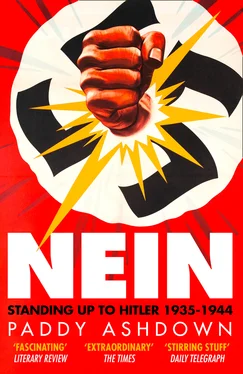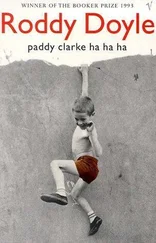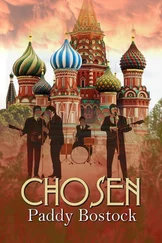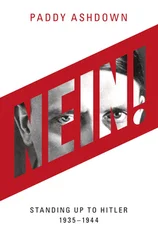The weather in The Hague on 3 August 1939 was brilliant and swelteringly hot. As evening fell, a brisk offshore breeze set the great sails turning on the windmills that stood like sentinels on the flat land around the city. Shortly after dusk, just as the street lights came on, a burly figure appeared in the arched doorway of De Favoriet. ‘ Grüss Gott ,’ he said, smiling at Aloïs Franck, who was waiting for him in the dimly-lit, high-vaulted space of the Jelineks’ shop. Without another word, the new arrival walked through to a back room, empty save for a table, a chair, a typewriter and neat stacks of white cardboard boxes marked with stencils proclaiming ‘Gloves – Made in Czechoslovakia’.
Paul Thümmel, alias Agent A54, sat down and began typing, hesitantly and with two fingers, for he was not used to a typewriter:
Nazi leaders think that France and England will not intervene in the event of a clash with Poland and that support for Poland will be limited to the supply of war materials and financial aid … If France does decide to fight … she will not be attacked … The Germans will take up defensive positions behind their ‘Western Wall’ lines of defence …
As Thümmel worked, occasionally pulling on a cigarette burning in an ashtray beside him, the stack of typed A4 pages by his typewriter grew. At around 2 a.m., with the room thick with the fug of cigarette smoke, his ashtray full of butt-ends and a sizeable pile of paper by his typewriter, he pushed back his chair and proclaimed his work finished. A final cigarette, a glass of schnapps, a few words with Franck about their next meeting, and Thümmel left as swiftly as he had come, into the night.
The following morning, Thümmel’s report was taken to the British embassy in The Hague and sent to London by diplomatic bag. It was voluminous, detailed and, in intelligence terms, a goldmine. It contained, among other things, the entire detailed battle plan for the invasion of Poland, including a sketch map showing the invasion routes, the details of the two army groups that were to spearhead the attack, and the names of the German commanders involved down to divisional level. It also provided a complete list of Polish agents working for the Abwehr, along with a curious and seemingly puzzling piece of extra information: Hitler had ordered Canaris to provide SS chief Heinrich Himmler with 150 Polish army uniforms and firearms from the infiltration equipment store used by the special forces of the Brandenburg Regiment. Quizzed about this, Thümmel presumed that the uniforms were needed for some kind of manufactured ‘incident’ involving an act of fake ‘aggression by Polish troops’. This was important information, not just for its own sake, but also because it showed that A54 had access, if not to Canaris himself, then to someone very close to him. In the event, Canaris deftly used the rivalries in Hitler’s administration to divert Himmler from getting his hands on the Abwehr’s Polish uniforms, scoring a small but satisfying bureaucratic victory. But since Himmler then managed to get the uniforms from another source, this had no effect at all on the progress of events, which were by now moving at increasing speed towards their ineluctable conclusion.
Not long after Thümmel’s second meeting with Franck, Madeleine Bihet-Richou heard news from Paris that her son Pierre was critically ill with pneumonia. As she said a hurried goodbye to Lahousen, he whispered to her that a plot to eliminate Hitler had been prepared, but there was hesitation amongst the plotters because of the overwhelming popularity of the Führer. Madeleine packed a small overnight bag so as not to give the impression that she was fleeing Berlin for good with the clouds of war gathering, and took the first train to Paris. She arrived just in time to get Pierre into hospital for an emergency operation.
Lahousen’s whispered farewell message was accurate. Throughout June, July and August there had been regular secret plotters’ meetings, involving, among others, Goerdeler, Oster, Canaris, Beck, von Witzleben and the senior Foreign Office official and previous ambassador to Rome, Ulrich von Hassell, who, using an English parliamentary phrase, christened the group of resisters ‘His Majesty’s Most Loyal Opposition’. There was unanimous agreement that Hitler must go, but, as before, none at all about when and how the deed was to be done.
On 22 August Hitler called his generals to Berchtesgaden. Leaning on a grand piano and holding his notes in his left hand, he informed his audience that the pact with Stalin being secretly negotiated by Ribbentrop was imminent. As soon as it was signed, he would strike Poland. The target date was Saturday, 26 August. Canaris, propped against a pillar at the back of the room, and against Hitler’s specific instructions, took notes of the meeting. He reported to his Abwehr officers afterwards that the Führer had declared: ‘Poland is now right where I want her … Our opponents are little worms [who will not move against us]. I saw them in Munich. [My chief concern is that] … at the last minute, some bastard will produce a mediation plan.’
The following day, 23 August, to the astonishment of all – especially in London, where the government believed that it was about to conclude its own agreement with Stalin – Hitler, with appropriate flourish, unveiled the Soviet–German Non-Aggression Pact. It contained a secret protocol stipulating that Poland and Eastern Europe were to be divided up and parcelled out in two packages – one for Führer Adolf Hitler, and the other for ‘Uncle’ Joseph Stalin.
As the world reverberated to Hitler’s astonishing diplomatic coup, Madeleine Bihet-Richou in Paris began to receive the first of a stream of postcards from Lahousen. Each was sent from a different location close to the Siegfried Line, which protected Germany’s western border. Using the secret code the two had devised between them, Lahousen informed Madeleine about Hitler’s Berchtesgaden meeting and the new launch date for Operation White, the invasion of Poland: Saturday, 26 August 1939.
On 25 August, the day before Hitler’s projected start date for the attack, Carl Goerdeler flew to Stockholm, ostensibly on business for Robert Bosch, but in reality to set up a secret channel to London which could be used if war broke out. The main conduits for this were two Swedish bankers, Jacob and Marcus Wallenberg, who used their Enskilda Bank in the Swedish capital to communicate with London.
Now began a wild scramble to prevent the coming catastrophe, through diplomatic means in the West and by means of Hitler’s assassination in Berlin.
On the morning Goerdeler flew to Stockholm expecting war, Hitler called in British ambassador Nevile Henderson and announced that he wanted to make a ‘big proposal’ for peace. Henderson arrived in the Chancellery at 1.30 p.m., to be told by Hitler that ‘under the condition that, during a lengthy period, Germany’s colonial demands would be fulfilled through peaceful negotiations, and under the further condition that Germany’s relations to Italy [sic] and the Soviet Union would not be prejudiced, he would not only guarantee the existence of the British Empire, but promise German assistance whenever and wherever it would be required’. It was a feint designed to hoodwink London into believing that the danger of war had passed. No sooner had Henderson left than Hitler called one of his adjutants and instructed him to issue the order that the attack on Poland was to be launched at 5 a.m. the following day. Then the Führer sent a message to the French ambassador, calling him to the Chancellery at 5.30. Hitler’s aim in seeing the Frenchman was to sow further confusion by asking him to seek Paris’s views on his ‘big proposal’ for peace.
Things started to go wrong for Hitler’s plans at around 3.30 p.m., when, following an urgent request, he agreed to see the Italian ambassador. Attolico, his voice again an octave higher than normal, said, ‘I must unfortunately inform you that Italy, without the supply of the necessary raw materials, cannot enter the war.’ Mussolini had picked up word of a new Anglo–Polish treaty which was just about to be signed, and had suddenly been overtaken with another attack of cold feet.
Читать дальше












